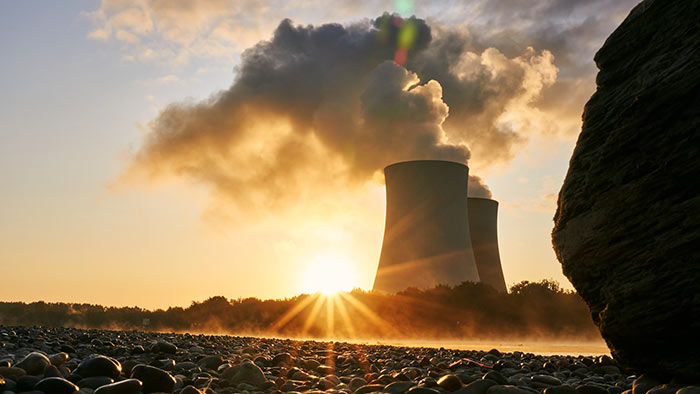Sri Lanka approves nuclear power plant construction with Russia as top contender

Sri Lanka currently imports most of its energy needs, including oil, coal and hydrocarbons. To ease the economic burden, the island nation aims to generate 70% of its electricity from renewable sources by 2030.
Russia has emerged as one of the strongest contenders to build nuclear power plants in Sri Lanka, according to a media report published on Tuesday.
According to the report, a high-level delegation from Russia recently visited the island nation and discussed proposed cooperation in the nuclear energy sector with the Sri Lankan authorities.
Chairman of the Sri Lanka Atomic Energy Authority (SLAEA) Prof. S.R.D. Rosa briefed the Russian delegation on the status of Moscow’s proposal to develop an offshore or onshore nuclear power plant in Sri Lanka. He said his office had in principle given its approval for nuclear power to enhance Sri Lanka’s energy mix and it had been sent to the Ministry of Foreign Affairs for approval.
“We can implement this project only if the Intergovernmental Agreement (IGA) is signed between Sri Lanka and Russia. That is now pending,” he added.
Many countries, including the US, Denmark and China, have expressed interest in investing in nuclear power plants in the island nation after the SLAEA gave the green light to nuclear power.
Why Russia Is Foremost Contender
Russia has taken a leading position in building nuclear power plants in South Asian countries. It has demonstrated its efficiency and understanding of the region by building plants in countries such as Bangladesh, China and India.
In addition, recently, Russia signed a memorandum with Burkina Faso, a country in West Africa, to construct a nuclear power plant.
Meanwhile, earlier speaking with Sputnik, Sergey Pikin, director of the Energy Development Fund, a Moscow-based think tank, said Russia can support them as it is also a supplier of technology, help them (Sri Lanka) while constructing the station, and with other requirements, including finances.
“I think the choice of Sri Lanka is obvious,” Pikin said, adding, “Russia is a global leader, and Colombo should move forward with Russia”.
In July, media reports quoted Wijesekera saying that Sri Lanka is assessing nuclear power plant offers from Russia and other countries.
Sri Lanka, a country of 22 million people, secured a $2.9 billion bailout loan from the International Monetary Fund to end its worst economic crisis since the end of colonial rule in 1948.
According to media reports, Sri Lanka’s electricity generation in 2020 was heavily reliant on fossil fuels (10 TWh) and hydropower (5 TWh), with small contributions from wind and solar. The CEB’s long-term energy plans include nuclear power from 2030.
In 2022, a team of IAEA experts assessed Sri Lanka’s readiness for a nuclear power programme through an Integrated Nuclear Infrastructure Review. This review was part of the IAEA’s Milestones Approach, designed for countries introducing nuclear energy.
(Source: Sputnik)
Latest Headlines in Sri Lanka
- Susantha Chandramali passes away March 1, 2025
- IMF approves $334 Million for Sri Lanka as reforms show progress March 1, 2025
- Sri Lanka President promises to end crime networks and improve national security February 28, 2025
- Warrant issued for Wasantha Mudalige over court no-show February 28, 2025
- Court orders arrest of Ex-IGP Deshabandu Tennakoon over Weligama shooting February 28, 2025


